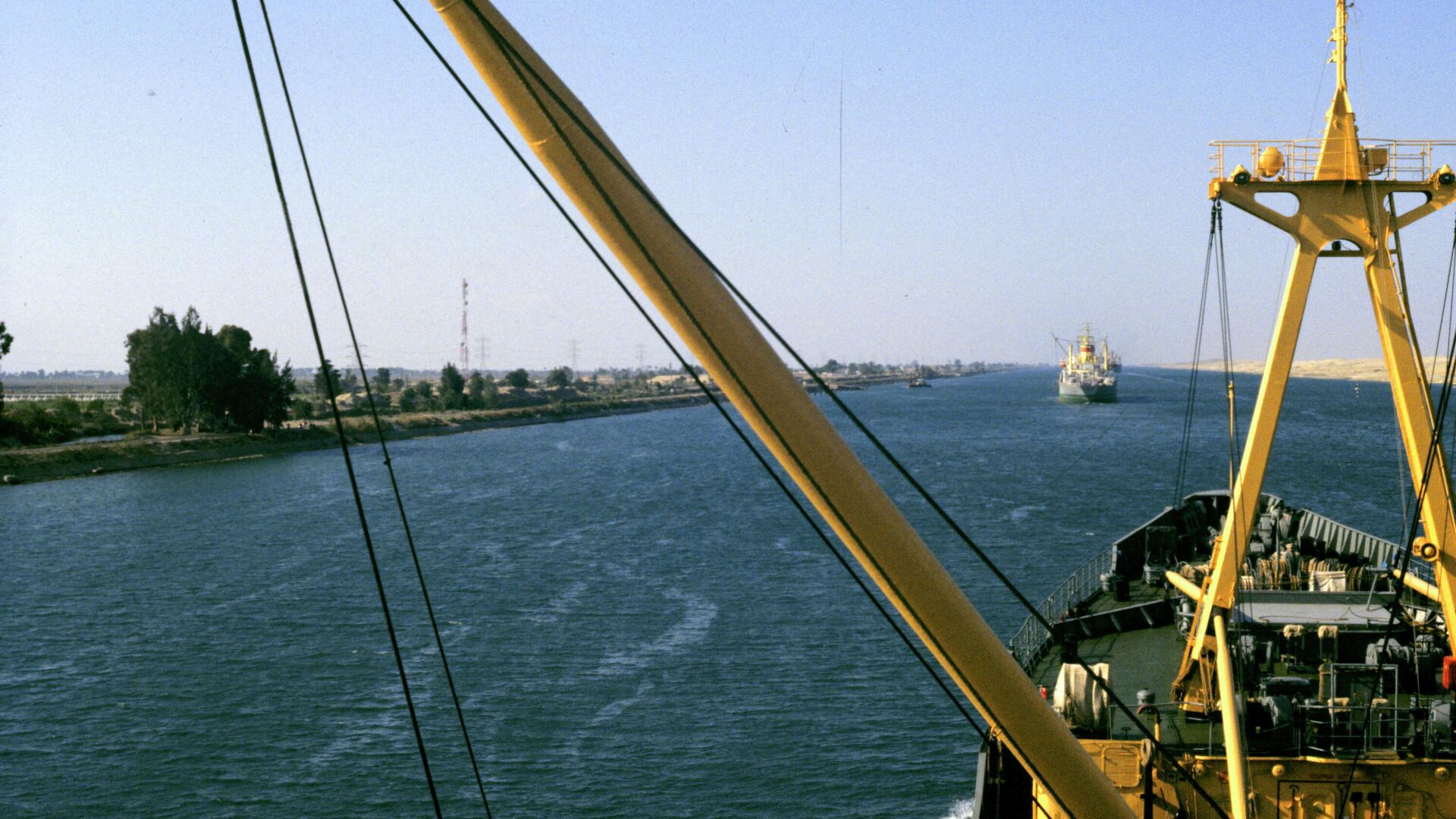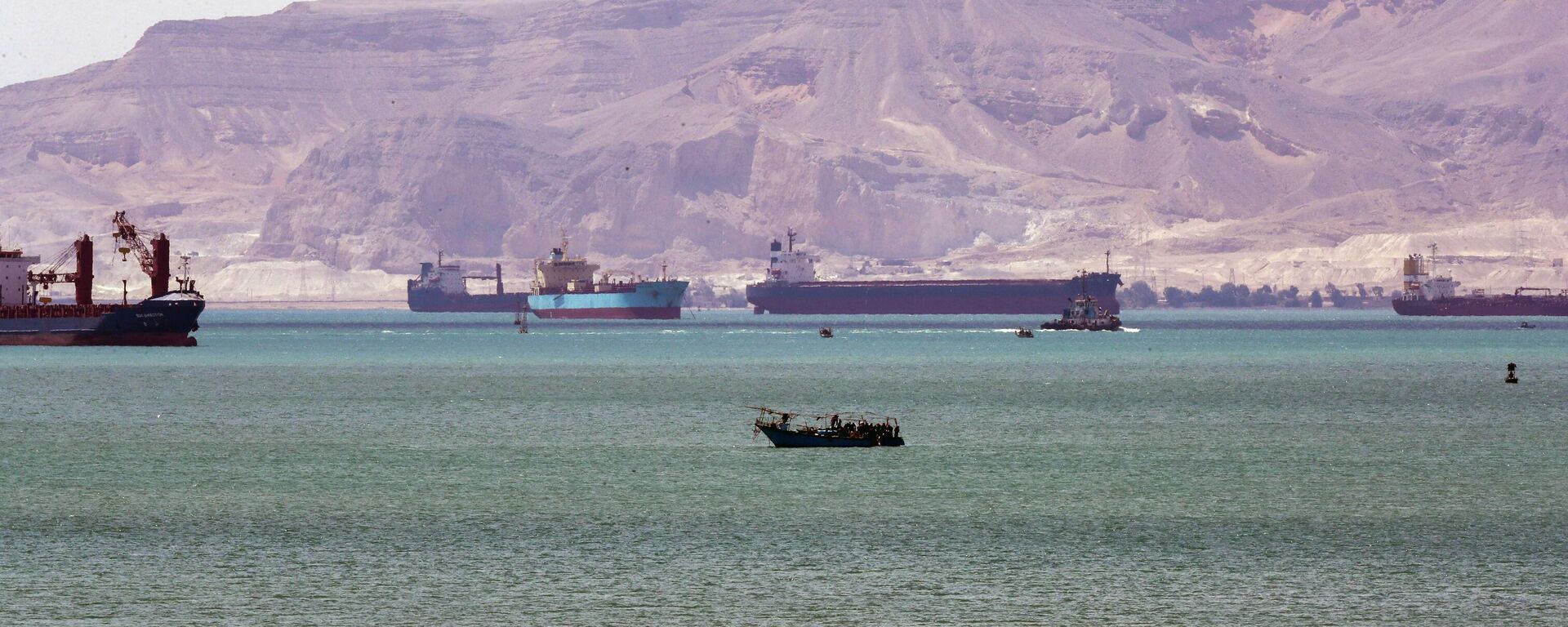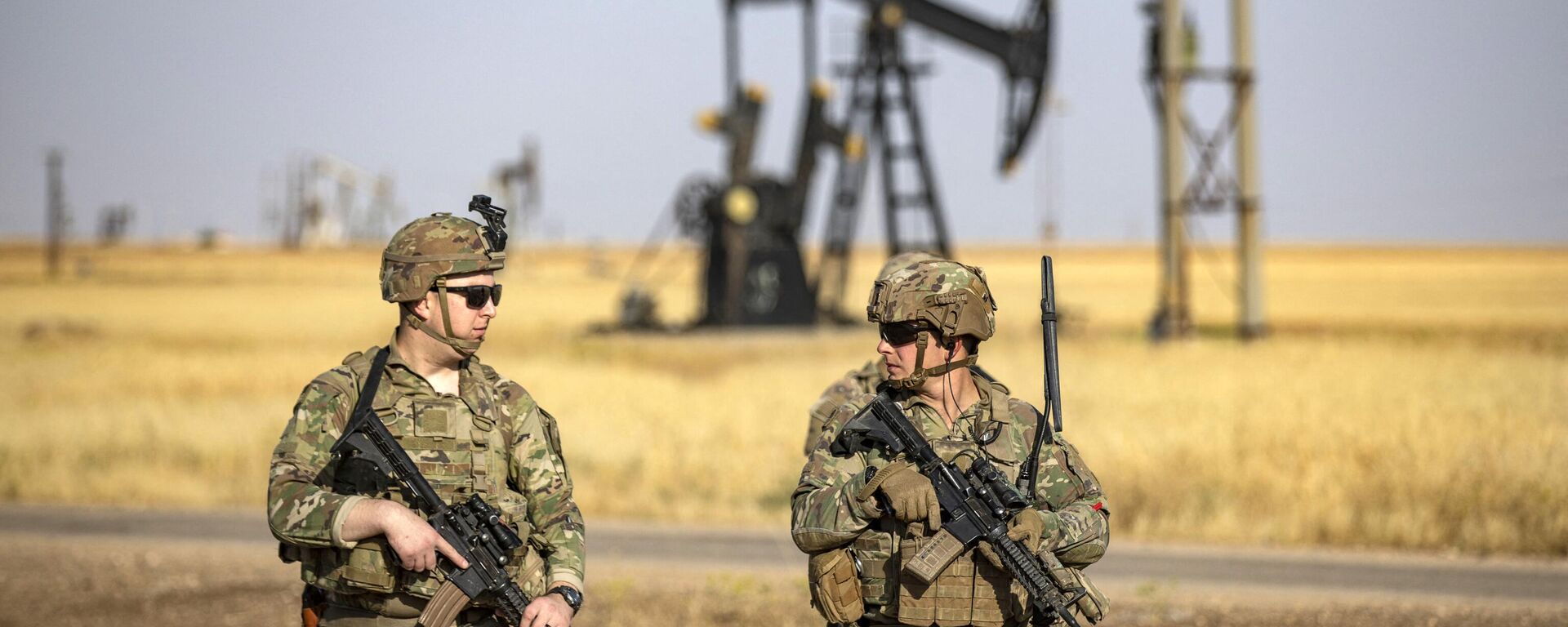Houthi Attack on Commercial Ships in Red Sea a Warning to Israel and US - Experts
18:10 GMT 04.12.2023 (Updated: 09:24 GMT 05.12.2023)

© Sputnik / Zorin A.
Subscribe
Three Bahama- and Panama-flagged commercial vessels, allegedly belonging to Jewish businessmen, were subjected to a Houthi missile attack in the Red Sea on Sunday. A US warship in the region reportedly shot down three drones in self-defense.
A recent escalation of tensions in the Red Sea has come on the heels of the resumption of the military operation in Gaza by the Israel Defense Forces (IDF).
The Red Sea is considered one of the most important trade routes in the region. It extends southeastward from Suez, Egypt, to the Indian Ocean through the Bab el Mandeb sound and the Gulf of Aden. Over 10% of global trade passes through the Red Sea annually. On Sunday, multiple commercial vessels were simultaneously attacked by Houthi militants for the first time in the Israel-Hamas war.
"The Red Sea could become a more dangerous route, but in proportion with the increasing tension between Israel and Hamas on one side at a local level and also at a regional level between Iranian allies from Lebanon and Syria, Iraq and Israel itself and the US military bases in Syria and Iraq. Everything is connected," Dr. Lorenzo Trombetta, a Beirut-based scholar and analyst specializing on the Middle East, told Sputnik.
"Both of the cargo ships targeted by the Houthi in November and a few days ago were not Israeli-flagged ships, but they were owned by Israeli businessmen. That was the aim of the direct target of the pro-Iranian government," the scholar continued.
Last month, Hezbollah Secretary-General Hassan Nasrallah linked Shiite attacks on US military bases and personnel in Syria and Iraq to the unfolding Gaza war. "To the Americans, I say: If you want the secondary fronts to stop, you must cease the aggression on Gaza," he said on November 11. On November 20, Houthi rebels seized an Israeli-linked cargo ship that passed the Red Sea and took its 25 crew members hostage. During the week-long truce between Israel and Islamist Palestinian group Hamas militants across the region appeared to hit the pause button. However, after the humanitarian pause ended, tensions have grown even higher.
"I believe that these developments in the Red Sea region come within a broader context of threats from armed groups and forces sympathetic with the Palestinian people in Gaza and the West Bank," Ambassador Ezzat Saad, director of the Egyptian Council for Foreign Affairs, told Sputnik. "It is normal that these developments raise concern for the countries of the region as well as the international community at large, taking into account the geo-strategic importance of the sea."
Per Saad, one might expect that Houthi and Shiite militants are likely to proceed with their attacks as long as the US-backed Israeli military is continuing their operation in Gaza. He doesn't rule out that the situation may run out of control if the number of civilian casualties continues to grow in the strip.
For its part, the Israeli government has made it clear that it is determined to eradicate Hamas, which is designated as a terrorist organization by Tel Aviv. Israeli policy-makers argue that the Islamist group is using Palestinians in Gaza as "human shields" while launching attacks from the strip. At the same time, Israel has come under criticism from Arab states and the UN over the skyrocketing death toll among civilians. As Tel Aviv and Washington don't demonstrate any inclination to scale down the intensity of military actions, the situation on the ground is deteriorating.
"We should say that the Red Sea route could be more or less safe, or commercial vessels not directly linked with the Middle Eastern war not directly linked with Israel or the United States. While, of course, they could become a target in case they are linked to Israel. Of course, in this tense situation, when the war, the battled war, when the use of weapons is increasing in the Red Sea, especially close to the Hudaydah Yemen port in the stand of the pro-Iranian government, of course, all the commercial vessels should be should be very cautious traveling along this route. So this route is becoming more dangerous. But it doesn't mean that the route is an open theater to war," Trombetta concluded.



